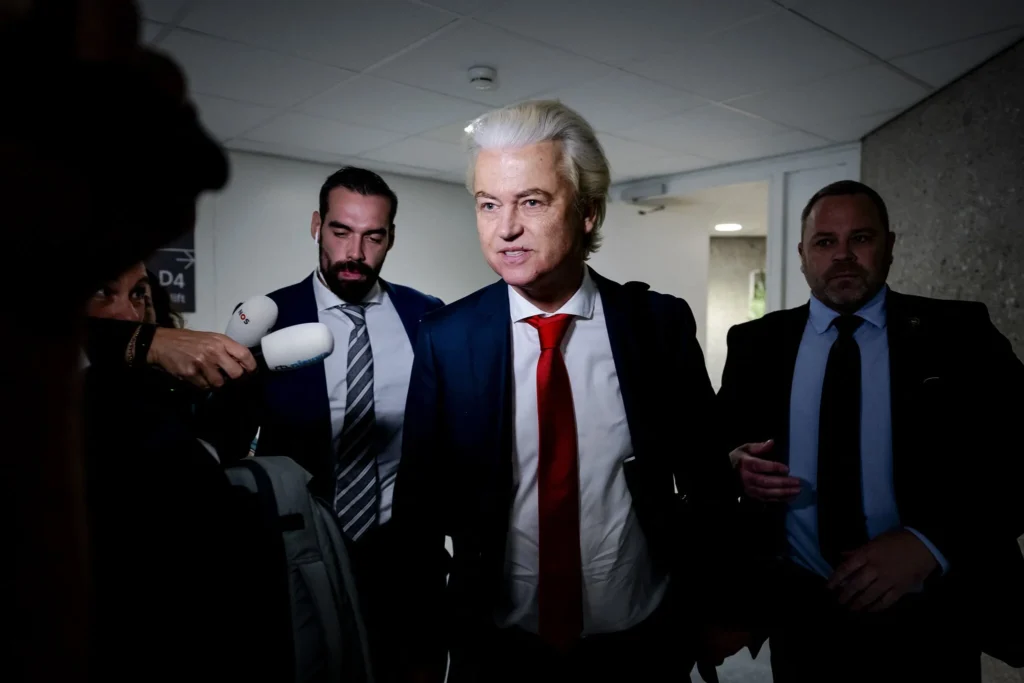Table of Content:
Introduction to AI in Music
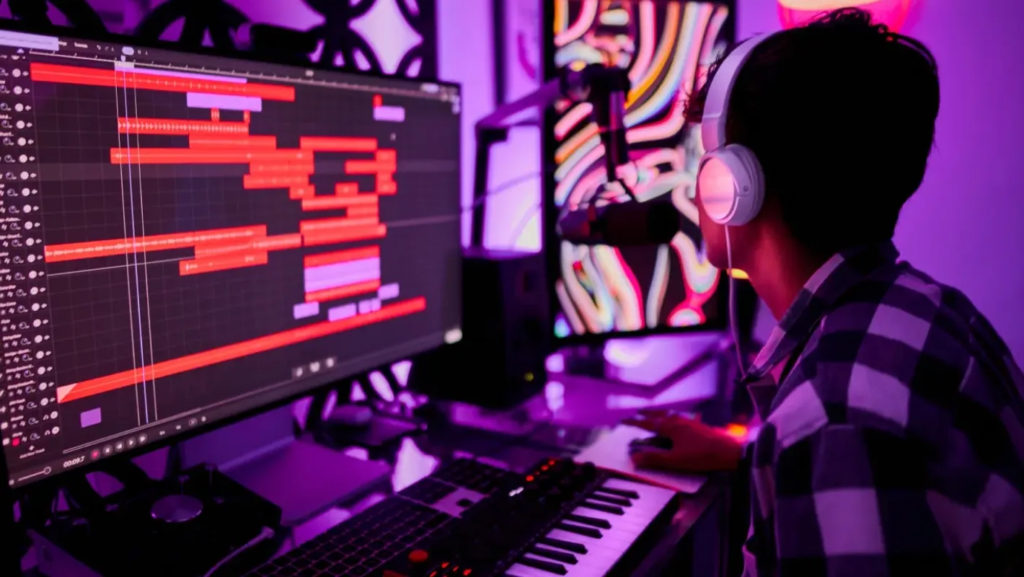
AI is changing the way music is made. It helps musicians, producers, and even beginners create songs easily. AI learns from existing music, studies patterns, and creates new tunes in minutes. This technology saves time and helps artists explore new ideas. Even people without musical skills can now make songs.
However, AI music may lack human emotion and sometimes sound too similar to other songs. Some also worry it could replace human musicians. Despite these challenges, AI is improving and will continue to support music creation. It may not replace human creativity, but it will shape the future of music.
Benefits of Using AI in Music Creation
AI is changing the music industry by helping create songs quickly. It analyze data quickly, making composing and producing easier. It also creates new sounds. AI suggests unique styles that inspire fresh ideas. Artists can work with AI to mix old and new music techniques, making exciting songs.
AI also personalizes music. It suggests playlists and even creates songs based on what listeners like. This technology is changing music, making it faster, more creative, and more personal.
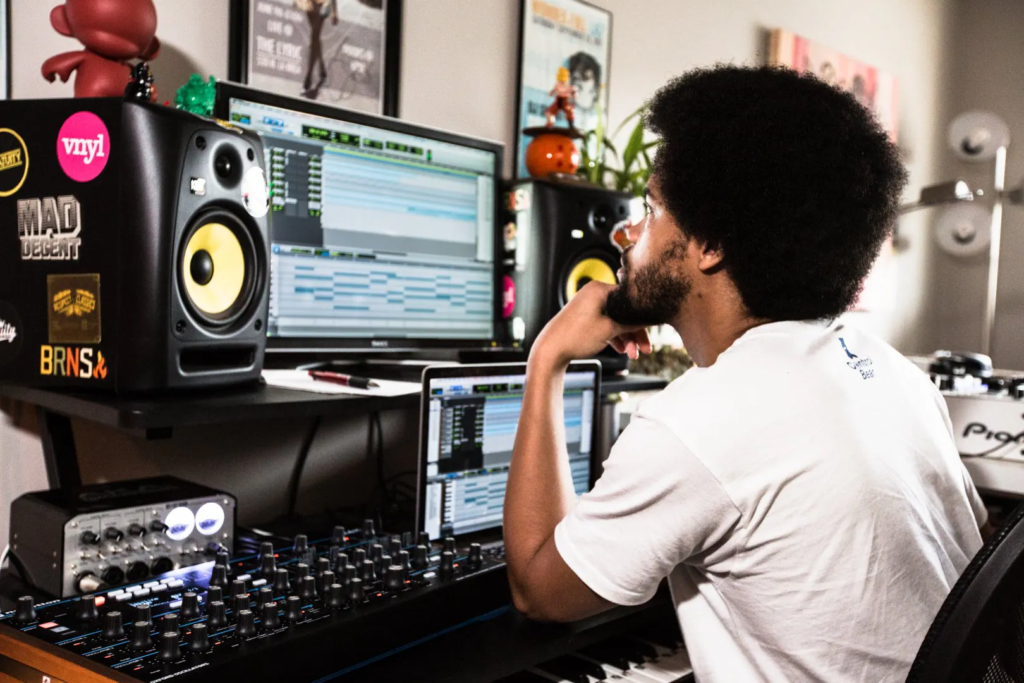
A. Made Music Faster and Easier
AI helps musicians create music quickly. Before, writing songs took a lot of time. Now, AI tools speed up the process.
- Creates Music in Seconds – AI can make melodies and beats fast, so artists don’t have to spend hours thinking of new tunes.
- Handles Technical Work – AI can mix and edit music, so musicians don’t need to do everything themselves.
- Faster Music Production – AI helps artists finish songs quickly without losing quality.
B. Discover New Sounds and Styles
AI helps musicians try new sounds and mix different styles. It finds patterns in music and suggests fresh ideas.
- Mixes Different Music Styles – AI makes it easy to mix different types of music, like adding electronic beats to classical tunes.
- Suggests New Tunes – AI comes up with melodies and harmonies that artists might not think of.
- Encourages Creativity – These new ideas help musicians make unique and exciting songs.
C. Work Together with AI
AI does not replace musicians—it helps them make better music. It is like a smart assistant for artists.
- Helps with Song-writing – Musicians can write lyrics while AI creates a melody to match.
- Understands Music Trends – AI studies what people like and helps artists make songs that listeners will enjoy.
- Easy for Everyone – Even beginners can use AI to make high-quality music.
Since AI handles the hard work, musicians can focus more on emotions and creativity. This mix of human ideas and AI tools is changing how music is made.
Challenges of AI-Generated Music
AI in music creation has many challenges. One big issue is copyright. When AI makes music, it’s unclear who owns it—the programmer, the user, or the machine. Another problem is emotion. AI can create music, but it often lacks real human feelings.
This makes it harder for listeners to connect with the songs. Ethical concerns also arise. If machines help create music, is it truly art? Can AI understand creativity? These questions make AI in music a complex topic.
1. Copyright Issues
- AI in music brings big questions about who owns the songs. Is it the person using AI, the person who made the AI, or both? Old copyright rules were made for humans, so they don’t fully cover AI-made music.
- AI also learns from existing songs. If it uses copyrighted music without permission, is that stealing? Some artists may find their style copied without knowing.
- To solve this, musicians and experts must work together to make clear rules and protect creative rights.
2. Lack of Emotion
- AI can make music, but it struggles to show feelings. Music is special because it comes from human emotions and real-life stories.
- When artists write songs, they share their happiness, sadness, or struggles. AI just follows patterns, so its music can feel empty or robotic.
- People connect with music that feels real. To improve AI in music, it needs a way to add emotion and a human touch.
3. Ethical Concerns
- AI in music raises fairness issues. If AI makes a song, who should get credit? The user, the creator of AI, or no one? There is no clear answer yet.
- Another problem is realness. Music has always been a human way to share feelings. If AI makes music, does it still feel real? Some worry AI-made songs will lack soul.
- AI could also take jobs from musicians and songwriters. If AI in music keeps improving, will people still be needed to make music?
- Also, if everyone relies on AI, music might start sounding the same. Keeping a balance between AI and human creativity is important.
The Rise of AI in Music Creation
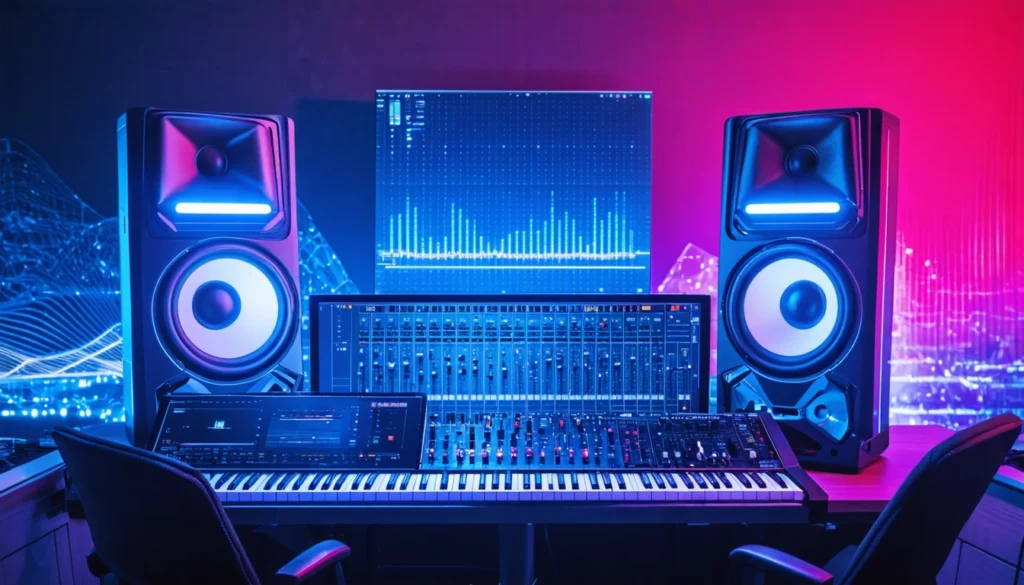
AI is changing the way music is made. It helps musicians create songs faster, experiment with new sounds, and improve production. Earlier, making music took a lot of time, but now AI makes the process quick and easy. With AI handling technical tasks, artists can focus more on creativity.
- Faster Music Creation – AI can create melodies and beats in seconds. Musicians no longer have to spend hours thinking of new tunes. This saves time and boosts creativity.
- Helps with Editing – AI tools mix and edit music, balancing sound and removing background noise. This improves quality without extra effort.
- Explores New Sounds – AI helps musicians mix different music styles. It can blend classical tunes with electronic beats, creating fresh and exciting tracks.
- Suggests Unique Ideas – AI finds patterns in music and suggests new melodies and harmonies. This helps artists try different styles and make their music more interesting.
Real-life Examples of AI in Music Industry
AI is changing how music is made, shared, and enjoyed. Many artists and companies are already using AI in different ways.
1. AI Creates Songs
- AI can make entire songs. For example, “Daddy’s Car” was created by Sony’s AI system, Flow Machines, and sounds like The Beatles. Another AI, AIVA, composes classical music for films and games.
2. AI Helps in Music Production
- Music producers use AI to make their work faster and easier. LANDR is an AI tool that improves the sound of songs in seconds. Amper Music helps create background music quickly, even for beginners.
3. AI Suggests Songs You May Like
- Streaming platforms like Spotify, Apple Music, and YouTube use AI to recommend songs. AI studies what you listen to and creates playlists that match your taste, helping you find new music.
4. AI Assists Musicians
- Artists use AI to get new ideas. Taryn Southern, a singer, made her album “I AM AI” using AI for melodies and harmonies. She added her own creativity to make the songs unique.
5. AI Restores Old Music
- AI can fix old or damaged songs. Google’s AI tool, part of its Magenta project, cleans up poor-quality recordings, making them sound fresh again.
6. AI in Live Performances
- AI is even used in concerts. David Bowie’s “Bowie Is” exhibition used AI to create an interactive music experience. Some DJs also use AI to mix music live, making each performance special.
- AI is making music easier to create and enjoy. While it can’t replace human creativity, it is a helpful tool that makes music better for both artists and listeners.
The Future of AI in Music Industry
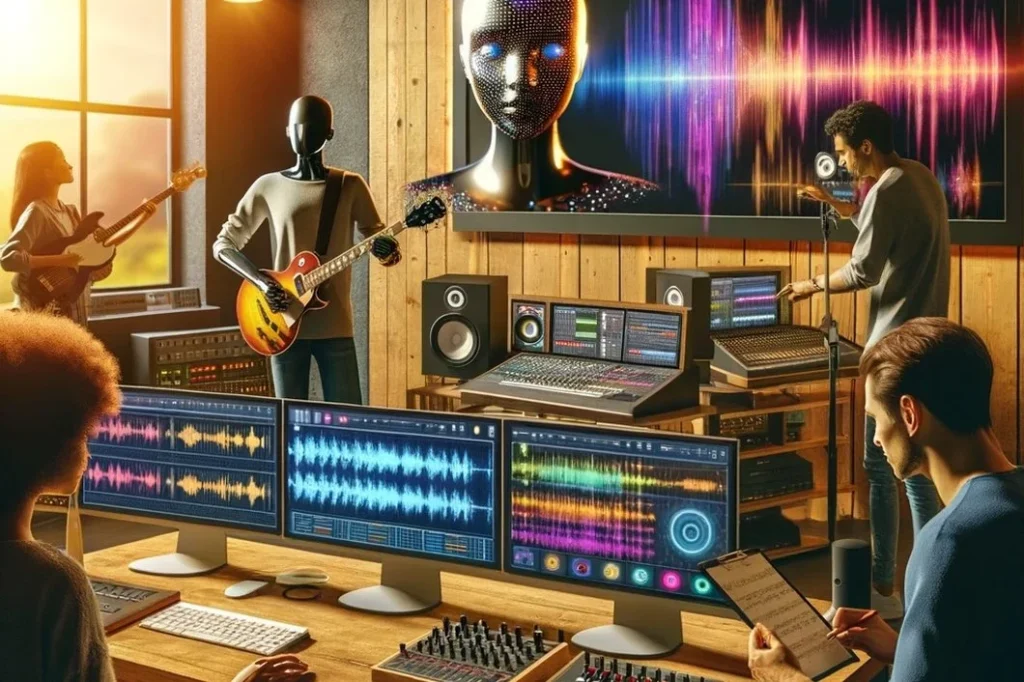
AI is changing how music is made, produced, and enjoyed. In the future, it will play an even bigger role, helping artists and listeners in many ways.
- AI as a Music Assistant: AI will help musicians create songs faster. Tools like AIVA and Amper Music already generate melodies and harmonies. In the future, AI will offer better ideas, helping artists try new styles and sounds
- Faster and Easier Music Production: AI-powered tools will speed up recording, mixing, and mastering. LANDR and iZotope already help improve sound quality. Soon, AI might create full music tracks with very little human effort.
- More Personalized Music for Listeners: Streaming apps like Spotify and Apple Music use AI to suggest songs. In the future, AI could create custom-made tracks based on a listener’s mood or activities, giving everyone a unique music experience.
- AI for Businesses and Content Creators: Companies, YouTubers, and game developers will use AI to make background music quickly and at a lower cost. This will make high-quality music available to more people.
- AI in Live Performances: AI can help DJs and musicians create live mixes on the spot. In concerts, AI could adjust lighting and sound in real-time, making performances more exciting.
- Restoring Old Musi: AI will continue to improve old and damaged recordings. It will make classic songs sound clearer and better for modern listeners.
- Copyright and Ownership Issue: As AI creates more music, there will be questions about who owns it. Musicians and industry leaders will need to find fair ways to credit and pay artists for AI-generated work.
AI will not replace human creativity but will make music creation faster, easier, and more innovative. The future of AI in music looks exciting!
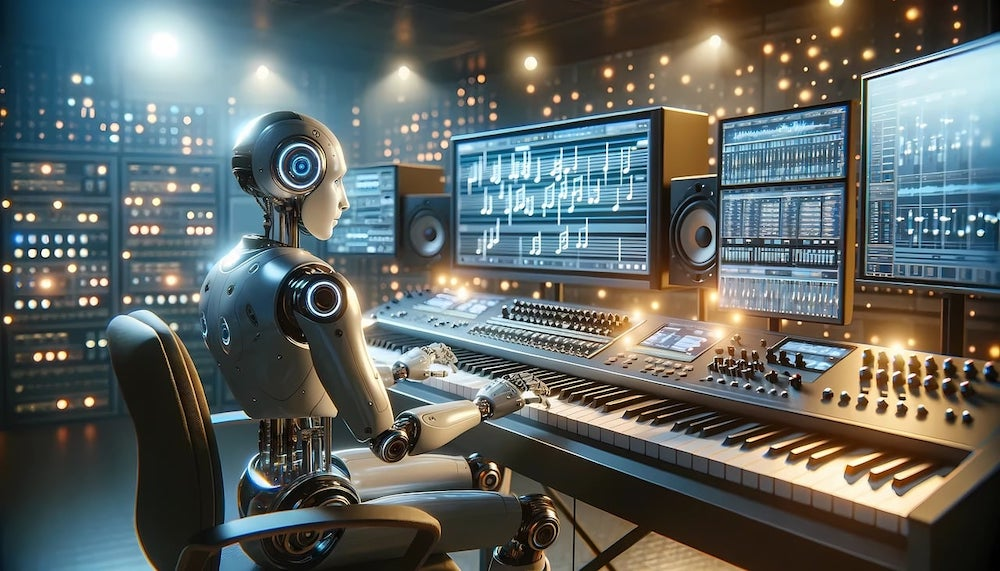
Conclusion
While AI can compose melodies and beats, it may struggle to capture deep human feelings in music. Listeners often connect with songs because of the emotions behind them, and AI-generated music sometimes lacks this personal touch. Despite these challenges, AI is not here to replace musicians. Instead, it serves as a powerful tool to assist them. As technology improves, AI and human creativity will blend even more, leading to exciting musical innovations. In the future, AI will continue to push the boundaries of music, making it more accessible, diverse, and inspiring for everyone.
